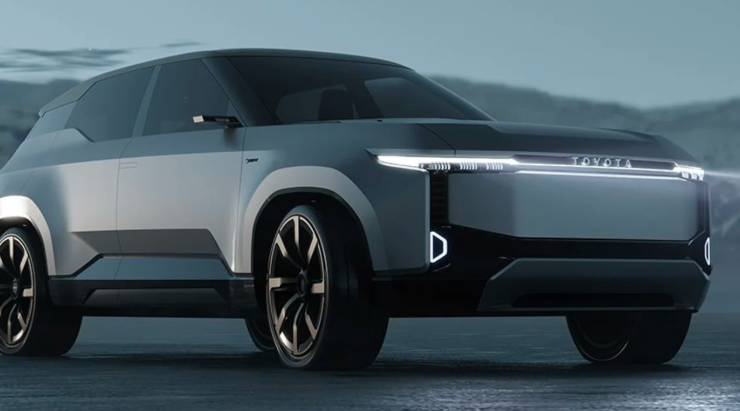Electric Car Revolution: Redefining The Future Of Transportation

In a world increasingly driven by technology and sustainability, the electric car stands as a symbol of innovation and progress. No longer limited to experimental prototypes or futuristic concepts, electric vehicles (EVs) are now firmly embedded in mainstream automotive markets. Governments, manufacturers, and consumers alike are embracing this clean-energy shift, transforming how we think about mobility.
This article explores the evolution, benefits, market impact, and future trajectory of the electric car, explaining why it’s reshaping transportation and what it means for the automotive industry at large.
The Rise Of The Electric Car: A Historical Perspective
Although the buzz around the electric car has skyrocketed in the past decade, its roots go back over a century. The earliest electric vehicle emerged in the late 1800s, even preceding gasoline-powered cars. However, limitations in battery technology, infrastructure, and performance led to the decline of EVs as internal combustion engines (ICEs) took over.
Fast forward to the 21st century, rising environmental concerns, technological advancements, and oil market volatility reignited interest in electric mobility. The modern electric car is not only viable but also desirable—offering style, performance, and sustainability.
Why Consumers Are Choosing The Electric Car
As awareness grows and EV technology matures, more individuals are ditching traditional petrol or diesel models for the electric car. Several compelling reasons are driving this shift:
1. Environmental Impact
The electric car significantly reduces carbon emissions. Unlike traditional vehicles, EVs emit zero tailpipe pollutants. When charged using renewable energy, they contribute virtually nothing to air pollution or greenhouse gases, helping combat climate change.
2. Lower Operating Costs
Electricity is cheaper than petrol, and EVs have fewer moving parts, reducing maintenance and repair bills. No oil changes, timing belts, or exhaust system repairs make ownership more affordable.
3. Advanced Driving Experience
The electric car offers a smoother and quieter ride. Instant torque from electric motors delivers quick acceleration, while regenerative braking and modern driving aids enhance safety and control.
4. Government Incentives
To promote sustainable transport, many governments offer incentives such as tax credits, grants, free parking, and toll exemptions for EV buyers. These policies help reduce the cost burden and accelerate adoption.
See also: Overview of 5-Axis Machined Parts
How The Automotive Industry Is Adapting To The Electric Shift
Traditional automakers and new entrants are investing heavily in electric mobility. Brands such as Ford, Toyota, BMW, and Hyundai are unveiling electric versions of their popular models. Meanwhile, dedicated EV makers like Tesla and BYD are expanding their portfolios and manufacturing capacities.
Manufacturers are also transforming their supply chains and production lines. Battery plants are being built near assembly units to improve efficiency. Companies are collaborating with tech firms to enhance EV software, autonomy, and charging capabilities.
Electric Car Technology: More Than Just A Motor
Today’s electric car is an advanced digital machine. Here’s what makes modern EVs smart and efficient:
- Battery Management Systems (BMS): Monitor and optimize battery performance, temperature, and longevity.
- Regenerative Braking: Converts kinetic energy during braking into electricity to recharge the battery.
- Connected Features: Remote access, diagnostics, over-the-air updates, and app-based controls.
- Autonomous Capabilities: Many EVs are equipped with sensors and software for semi-autonomous driving.
Barriers To Widespread Electric Car Adoption
Despite rapid growth, challenges remain:
1. Range Limitations
Although most modern EVs offer 250–400 kilometers per charge, this still causes anxiety for some users—especially those in rural areas with fewer charging points.
2. Charging Time
Even fast chargers can take 30–60 minutes. Compared to the 5-minute fuel-up time of ICEs, this is seen as an inconvenience.
3. Battery Lifespan And Replacement Costs
Although battery performance is improving, concerns about long-term degradation and high replacement costs persist.
4. High Initial Costs
The upfront price of an electric car is still higher than its fossil-fueled counterpart. However, this gap is closing as battery costs decline and production scales up.
Global Market Trends For Electric Cars
China, Europe, and North America lead in sales, infrastructure, and innovation. Governments are mandating EV quotas and phasing out internal combustion engines entirely in the coming decades.
Investments are also flowing into lithium mining, battery recycling, and renewable energy generation—all of which support the growth of EV ecosystems.
What The Future Holds: Solid-State Batteries, Autonomous EVs, And Beyond
The future of the electric car is incredibly promising. Innovations on the horizon include:
- Wireless Charging: EVs will charge without cords, using electromagnetic fields embedded in roads or parking spaces.
- Fully Autonomous EVs: Combining electric power with self-driving tech for a hands-free commuting experience.
Beyond technology, cultural shifts are underway. Young drivers now prioritize sustainability, connectivity, and convenience—values at the heart of EV ownership.
Conclusion: The Electric Car Is Just The Beginning
The electric car represents far more than an automotive upgrade—it symbolizes a broader shift toward sustainability, digitalization, and global responsibility. It is the cornerstone of a cleaner future and a smart investment for both individuals and nations.
Whether you’re an eco-conscious driver, a fleet manager, or an investor in green tech, now is the time to embrace the electric journey. Because with every mile driven, the electric car is not only taking us forward—it’s taking the planet forward.




